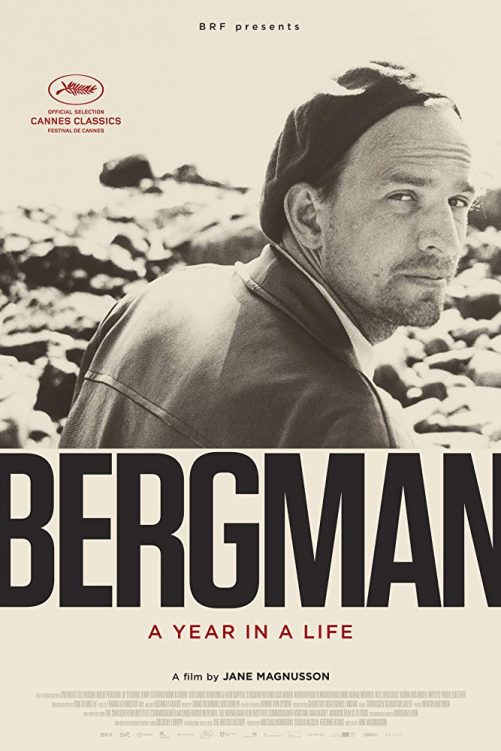Bergman: A Year in a Life

Bergman: A Year in a Life looks at the year 1957, the height of the eponymous director’s career, in which he arguably created his best films, The Seventh Seal and Wild Strawberries. Due to the unique fashion in which the Swedish auteur explored genres that drew semblance with Wagner and Strindberg rather than his own contemporaries, his name became synonymous with the art form. Ostensibly, it was the substance and not the form which most bedevilled viewers and critics.
The Bergmaniacs hailed the filmmaker’s work as a crude and unflinching exhibition of himself to reality. The English critic Robin Wood in 1969 calls him “a great modern hero” while detailing the ways in which Bergman explores Christian beliefs – such as notions of sin and judgement – with which he grew up.
Jane Magnusson’s documentary is a much-needed and perfectly timed portrayal of the great mask through which the great hero exhibited his reality. This feature is neither sensationalist nor is it overwhelmed by the power that the status of such a figure entails. The director is as careful and as successful in exposing the masks her subject wears and the roles he plays as Bergman is himself in exposing the masks and roles of the viewer to herself. The solipsistic character who formed sexual relations with almost every young woman with whom he worked, the careless father to 9 children by 6 different women, and the Hitler sympathiser who was “always talking about demons,” Magnusson shows, “was quite demonic himself.”
Critics have been quick to situate Bergman – A Year in a Life within the #MeToo movement, despite the fact that it was completed shortly before the start of the movement, because of the way in which it gives voice to the exploited women in the cinematic arts. However, the documentary goes further still in that it reveals the queerism of a lonely man behind a vast range of canonical mind-altering films such as Persona (1966), The Silence (1963) and Winter Light (1963). Magnusson shows that her subject is simultaneously a sensuous and caring lover, and an insensitive human whose weak will renders young women recyclable. He is at the same time brutally honest in his scrutinising gaze onto himself, and given to imagining and manufacturing his realities. While being isolated by his status and a mind that knows exactly the image that he wants to create, he is also intensely social. Bergman is shown to be a loathed and loved figure whose conflicting dualism in himself comes across as an underlying theme in many of his works.
Marissa Khaos
Bergman: A Year in a Life is released in select cinemas on 25th January 2019.
Watch the trailer for Bergman: A Year in a Life here:
























Facebook
Twitter
Instagram
YouTube
RSS